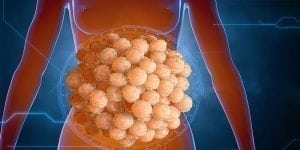When it’s time to start a family, you want to do everything in your power to ensure success. The information below will discuss the ways your dietary choices can affect your egg health.
As it turns out, there are many things you can do to improve your fertility. What you choose to put into your body on a daily basis can go a long way toward making a healthy pregnancy easier to obtain. The following information will explain the dietary connection to fertility. It will also offer practical advice to optimize your chances of conceiving and maintaining a healthy pregnancy.
How Do Carbohydrates Affect Egg Health?

First of all, diets rich in processed foods are often lacking in many essential vitamins and minerals. Refined carbohydrates such as those found in white flour products, sugar-rich snacks and breakfast cereals may act to prematurely age the body. Of course, anything that ages the body overall will affect egg health and the fertility process.
Secondly, achieving and maintaining a healthy pregnancy depends on a proper balance of delicate hormones. While many things can certainly affect the hormonal balance in women, the foods she chooses to eat are a major component that can be easily modified. Some statistics indicate that diets high in processed foods like those mentioned above promote hormonal imbalances, inflammation and premature aging of all bodily systems.
Are All Carbohydrates the Same?
In breaking down what this information means to you and your fertility, it’s important to know that not all carbohydrates are the same. The negative effects on fertility have been observed primarily by the consumption of refined carbohydrate products.
When determining whether a food choice fits this category, simply consider the process that goes into making it. For example, any products made with white flour versus whole wheat flour have been stripped of their natural vitamin and mineral content. These lost nutrients are then replaced with a few artificial vitamins, but these are not the same as the nutrients that naturally existed in the first place.
What Type of Foods Should I Consume to Maximize Fertility?

When making the bulk of your food choices, try to stick to foods that are as close to their natural form as possible. Diets that are rich in whole grains, vegetables, fruits, nuts and seeds, and lean sources of protein tend to provide the type of quality nutrition that supports hormone functioning, a healthy weight and excellent fertility.
Limiting highly refined carbohydrate products will also give you plenty of space to hold all the nutritious foods that can benefit your body as you prepare for supporting a pregnancy. Beans, lentils, brown rice and similar types of complex carbohydrates burn much more slowly in the body, providing ongoing energy and steady support of all bodily systems. Leafy greens, starchy vegetables such as sweet potatoes and non-starchy vegetables make up the balance of a healthy diet that will be able to meet your nutritional needs and those of a developing baby.
Preperation is the Most Important
For those who struggle with conceiving a child, the frustration and emotional upheaval can be extreme. While there are some factors that may be out of your control, taking charge of your dietary choices can be an empowering part of preparing for this next adventure in your life. By making wise dietary choices, you can obtain a healthy pre-pregnancy weight, balance your hormones and prepare your body to be healthy and strong enough to maintain a pregnancy. This preparation can provide you with the peace of mind that you’ve done all you can to ensure the process of adding to your family goes as smoothly as possible.




